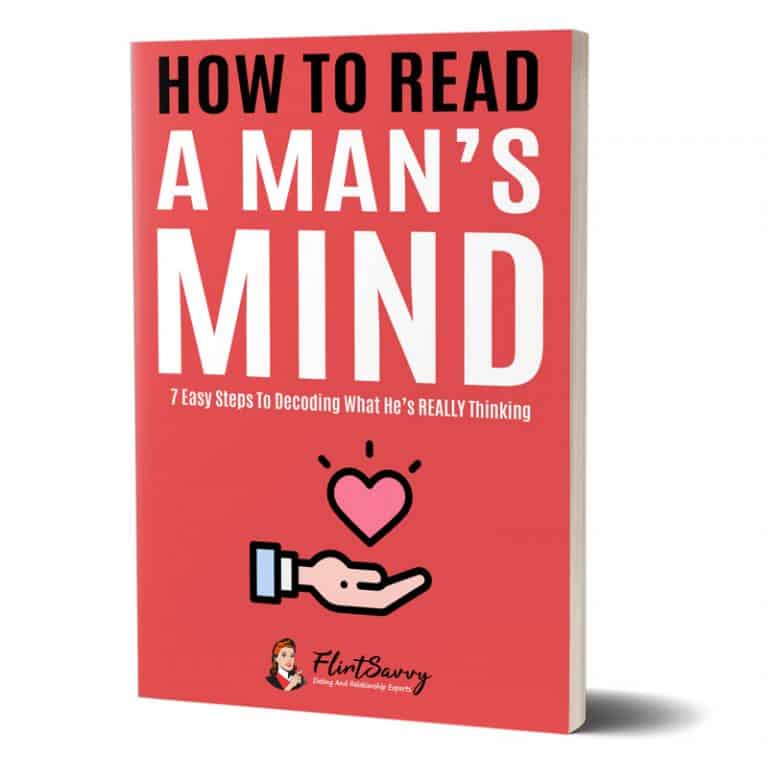Communication is the foundation of any healthy relationship, and this is especially true when it comes to your romantic partner.
But let’s face it, sometimes it can be difficult to communicate effectively with your boyfriend. Maybe you feel like he’s not listening to you, or perhaps you’re not sure how to express your feelings without starting an argument.
Whatever the case may be, improving your communication skills can help you build a stronger, more fulfilling relationship with your significant other.
In this article, we’ll explore some tips and strategies for communicating better with your boyfriend, so you can deepen your connection and strengthen your bond.
How To Communicate Better With Your Boyfriend?
1. Pay Attention to Your Language
As you communicate with your boyfriend, pay attention to the language you use. Take note of how many times you say “I”, “You”, or “We”. If the conversation is mostly about yourself, it’s not really a conversation. Remember to turn it back to your boyfriend and ask questions about how he feels, what his thoughts are, and what’s going on with him. If you find that you’re saying “You” a lot, what’s the context? Are you pointing fingers and placing blame? Relationships are about both people, and each should have an equal say about things. Both people need to feel heard and be able to share what’s on their mind.
2. Give Your Full Attention
Neuroscience shows that the human brain cannot multitask. During difficult conversations, try to give your boyfriend the gift of your full attention. Make an effort to eliminate distractions while you’re having a conversation. Putting your full attention on what your boyfriend is communicating to you also helps minimize the likelihood of misunderstandings. As much as possible, listen to your boyfriend with patience and curiosity.
3. Dig Deeper
Asking your boyfriend how his day went is nice, but if you want an extraordinary relationship, you must dig deeper. Learning how to communicate in a relationship is about fulfilling your partner’s needs. To improve communication in your relationship, you must discover how to listen, not how to talk.
4. Use “I” Statements
Often, couples begin a conversation by pointing the finger at the other person and placing blame. Instead of calling out your boyfriend for something he did wrong, try using “I” statements. For example, instead of saying “You never listen to me”, try saying “I feel unheard when we don’t communicate effectively”.
5. Validate Your Boyfriend’s Feelings
Validate your boyfriend’s thoughts and feelings by acknowledging and repeating back some of what he said. This shows that you are listening and that you care about his perspective.
6. Don’t Interrupt or Raise Your Voice
Interrupting or raising your voice during a conversation can escalate things quickly and make it difficult for both parties to communicate effectively. Try to remain calm and composed during difficult conversations.
7. Seek Help if Needed
If you find that communication is still a struggle in your relationship, consider seeking help from a professional therapist or counselor. They can provide guidance and support as you work through any communication issues in your relationship.
Understanding The Importance Of Communication In Relationships
Communication is the foundation of any healthy relationship. It is the process of exchanging information and expressing feelings, needs, and desires. Without effective communication, misunderstandings and conflicts can arise, leading to a breakdown in the relationship.
Effective communication in a relationship involves both parties being open and honest with each other. It means being able to express oneself clearly and listening actively to the other person’s point of view. When both partners are able to communicate effectively, they can build a stronger bond and develop a deeper understanding of each other.
One important aspect of communication in relationships is the ability to talk about important or sensitive issues face-to-face. This allows both parties to read each other’s body language and tone of voice, which can help avoid misunderstandings. It is also important to find the right time for important conversations, to ensure that both parties are in a calm and receptive state of mind.
Another crucial element of effective communication is avoiding abusive or verbally aggressive language, even when discussing emotive issues. This means using positive body language, such as maintaining eye contact, nodding, and smiling when appropriate.
When something is bothering you, it is important to take the time to have a conversation about it. Bottling up your feelings or brushing an issue under the carpet can end up causing more harm than good. Keep in mind that not everyone is good at expressing how they feel, so approach conversations in a calm and relaxed way, in a quiet environment where both parties are comfortable.
Identifying Common Communication Challenges In Relationships
Communication is a crucial aspect of any relationship, but it can also be a source of frustration and conflict. Here are some common communication challenges that couples face:
1. Misunderstandings: Misunderstandings can arise when one person misinterprets what the other person is saying. This can lead to hurt feelings and frustration.
2. Different Communication Styles: Each person has their own communication style, and it may not always match with their partner’s. For example, one person may prefer to talk things out, while the other person may need time to process their thoughts before discussing them.
3. Lack of Listening: Listening is a key component of effective communication, but it can be challenging to truly listen to your partner when you’re feeling emotional or distracted.
4. Criticism: Criticism can be damaging to a relationship, as it can make your partner feel attacked and defensive.
5. Avoidance: Sometimes, it can be tempting to avoid difficult conversations altogether. However, this can lead to unresolved issues and resentment.
6. Disrespectful Language: Using disrespectful language towards your partner can be hurtful and damaging to the relationship.
7. Power Struggles: Power struggles can arise when one person feels like they have more control or influence in the relationship than the other person.
By identifying these common communication challenges, you can begin to work on improving your communication with your boyfriend. Remember to listen actively, validate each other’s feelings, and seek help if needed. With practice and patience, you can develop a strong and healthy relationship built on effective communication.
Active Listening: The Key To Effective Communication
Active listening is a critical component of effective communication in any relationship, including with your boyfriend. It involves giving your full attention to your partner, not just hearing the words they say but also understanding their emotions and intentions. Active listening requires suppressing your ego and avoiding distractions, both internal and external. It means focusing on the conversation and the person speaking rather than thinking about what you can say next.
To be an active listener, try to go beyond the words and form a rich picture of your boyfriend’s emotions and intentions. This involves interpreting what he is saying and reading his non-verbal cues. It also means avoiding inventing meaning or coloring his words with your own thoughts. Active listening requires careful responses that show you understand what your boyfriend has said and have paid attention to his words.
Active listening also involves validating your boyfriend’s feelings by acknowledging and repeating back some of what he said. This shows that you are listening and that you care about his perspective. It’s important to avoid interrupting or raising your voice during a conversation, as this can escalate things quickly and make it difficult for both parties to communicate effectively.
Expressing Your Feelings Without Starting An Argument
Expressing your feelings without starting an argument can be a challenging task, but it is essential for healthy communication in any relationship. One way to do this is by using “I” statements instead of “You” statements. When you use “You” statements, it can come across as blaming or accusatory, which can lead to defensiveness and arguments. Instead, start your sentences with “I feel” or “I think,” followed by a specific example of what is bothering you.
Another helpful strategy is to practice active listening. This means giving your boyfriend your full attention and focusing on what he is saying, rather than planning your response or interrupting him. Repeat back what he said in your own words to show that you understand and validate his feelings.
It’s also important to avoid raising your voice or interrupting your boyfriend during difficult conversations. This can escalate things quickly and make it difficult for both parties to communicate effectively. If you find yourself getting too emotional, take a break and come back to the conversation when you are calmer.
Finally, if you find that expressing your feelings without starting an argument is still a struggle, consider seeking help from a professional therapist or counselor. They can provide guidance and support as you work through any communication issues in your relationship. Remember that healthy communication is key to a successful relationship, so don’t be afraid to seek help if needed.
Setting Boundaries And Resolving Conflict In A Healthy Way
In any relationship, it’s important to set boundaries and resolve conflicts in a healthy way. Here are some tips for doing so:
1. Timing is Key
When it comes to setting boundaries, timing is key. Choose a time when both you and your boyfriend are relaxed and not distracted by other things. If you’re in the middle of an argument, take a break and come back to it later when you’re both calm.
2. Be Clear and Specific
When setting boundaries, it’s important to be clear and specific about what you need. Vague requests can lead to confusion and misunderstandings. Instead, be direct and specific about what you need from your boyfriend.
3. Use “I” Statements
Just like in regular communication, using “I” statements can be helpful when setting boundaries. For example, instead of saying “You need to stop doing this”, try saying “I feel uncomfortable when this happens”.
4. Be Respectful
When setting boundaries or resolving conflicts, it’s important to be respectful of each other’s feelings and needs. Avoid blaming or attacking each other, and instead focus on finding a solution that works for both of you.
5. Listen and Validate
When your boyfriend sets a boundary or expresses a concern, make sure to listen and validate his feelings. Even if you don’t agree with him, acknowledging his perspective can help him feel heard and understood.
6. Take Breaks
If a conflict becomes too heated or overwhelming, it’s okay to take a break and come back to it later. This can give both of you time to cool down and think more clearly about the situation.
7. Seek Professional Help
If you’re struggling to set boundaries or resolve conflicts on your own, consider seeking help from a professional therapist or counselor. They can provide guidance and support as you navigate the challenges of communication in your relationship.
Remember, effective communication is essential for any healthy relationship. By setting boundaries and resolving conflicts in a healthy way, you can strengthen your relationship with your boyfriend and build a stronger foundation for the future.
The Role Of Non-Verbal Communication In Relationships
Non-verbal communication is an integral part of any relationship, and it plays a crucial role in building and maintaining a healthy connection between partners. Nonverbal messages can be a means for showing affection, expressing emotions, and aid in relationship maintenance and satisfaction. Vocal cues were found to be related to negative experiences, while touch was labeled in a more positive manner. Essentially, nonverbal communication consists of all the messages you exchange with your partner without actually using any words.
Nonverbal communication allows us to feel how someone is feeling. We can sense another person’s mood or attitude through genuine nonverbal communication methods. It’s true that love, trust, and honesty all play an essential part in building a healthy relationship. However, people often neglect the most crucial part of any relationship which is communication. Non-verbal communication can create a closeness and increase understanding. Part of non-verbal communication is not only showing how the “speaker” is feeling but how the “listener” interprets the cues.
Good eye contact is another essential nonverbal communication skill. When people fail to look others in the eye, it can seem as if they are evading or trying to hide something. On the other hand, too much eye contact can seem confrontational or intimidating. While eye contact is an essential part of communication, it’s important to remember that good eye contact does not mean staring fixedly into someone’s eyes.
Expressing love in a relationship can be done in many ways. Sometimes we tell each other explicitly how much we love one another. Other times, how we feel is communicated through touch – or lack of it. Touch is an essential part of nonverbal communication and can create a sense of intimacy between partners. If your partner rarely touches you or you only ever give your significant other a half-hearted hug, this could indicate a lack of connection.






